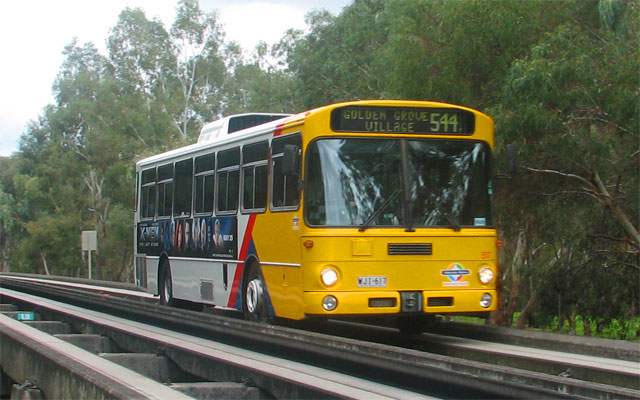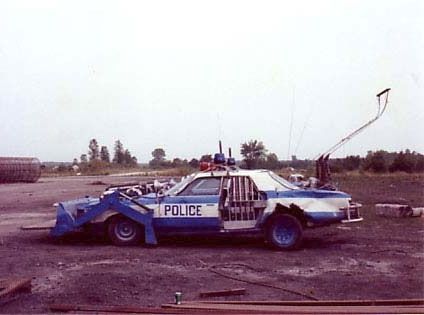What the actual fuck⁈ “Batteries can catch on fire.” Sure, whatever could go wrong with a 1000l tank of FUCKING GASOLINE.
AAAaaaaHHhh I hate people!
What the actual fuck⁈ “Batteries can catch on fire.” Sure, whatever could go wrong with a 1000l tank of FUCKING GASOLINE.
AAAaaaaHHhh I hate people!
Going with the “batteries catch on fire argument” is stupid. “Batteries are heavy and expensive” is probably more compelling. But yeah, wires are better solution for things going in fixed routes.
The ammount of water required to put out a normal car is infinitely less than the amount required to put out a battery fire.
Not to mention the extra weight, nor the retention loss per recharge meaning we need to change batteries every 2-4 years polluting a lot more, we ain't even talking about the energy loss when doing the conversion to electric and then again to mechanical.
The electric transport is the way to go in the future, but firts it needs to have a solid foundation, and nuclear is the way to go at least in this moment. Otherwise we are only making things worse.
Edit for those wondering about the battery degradation: https://www.geotab.com/blog/ev-battery-health/
we need to change batteries every 2-4 years
Wait, what‽ No. We don't need to change batteries every 2-4 years. That's what you do with TV remote controls and temperature sensors, not electric car batteries, LOL!
Electric car batteries are made to last at least 7 years (from a warranty standpoint) but in reality it's more like 10. Not only that but they're not single, gigantic objects. They're made of lots of "cells" so if one of them is going bad you can replace just that one bad cell.
Anecdote: The batteries in my Prius lasted 15 years before I had to replace one of the cells. Then a year later I had to replace another one. A year after that I sold it so I have no idea how the batteries are doing right now but I'm sure another cell would probably need to be replaced by now 19 years in service).
I'd also like to point out that the latest electric car batteries are vastly superior to the ones in my Prius.
Yeah, what I've heard is that water cooling the batteries (like almost every EV does now) massively extends the life. Early Prius batteries had no cooling and the heat degraded them faster. 15 years is a pretty good life still.
On the subject of battery warranty:
The federal government requires manufacturers to offer an eight-year/100,000-mile warranty on all EV batteries. California does one better, mandating a warranty of 10 years or 150,000 miles. Some companies will cover a battery only if it completely stops working, while others will replace the battery if it falls below a certain capacity, usually 70% of the original, while still under warranty.
It's important to note, a degraded battery, even with 50% of its original capacity is still useful. Someone who doesn't need the range could drive it, or the battery could be taken apart, and have the cells repurposed or recycled. Lithium and some of the other rare metals used in batteries are quite valuable for recycling, and our abilities to do so are getting better every year.
You’re aware that diesel is quite hard to catch on fire
That's why he said gasoline tho
But that’s not relevant for busses
No it's not. It's harder to catch fire than gasoline.
It still catches fire easily.
Meanwhile in Australia:

Bitch I’m a truss
That looks pretty sick ngl
It didn't suck as a solution when it was implemented. The buses function like small diesel trains; they don't have to deal with traffic, and can travel faster because they kinda lock in to the rails. It didn't need as much land as a freeway or cost as much as a dedicated train line because you could just retrofit old buses. Plus the advantage of being able to run a standard bus route at each end of the line, no need for connecting services.
What am I looking at? A diesel bus on rails?
Pretty much. This is the O-Bahn in Adelaide. More info (and the original picture I shamelessly ganked) here: Wikipedia link
Yikes
Meanwhile on the Autobahn:

WTF Germany how did I not know this was a thing and why aren't we doing it here in the US?
Question though. Obviously the wires can't cover every road and the truck sometimes has to drive off the wired road. Do they have small batteries to carry them between the wires?
There are 5 testing areas for this atm and only a handful of trucks which use that. These are hybrid trucks having batteries and electrical engines besides the main traditional diesel engine. So it's far from an widely adopted tech right now.
Battery fires are also less common than gasoline fires. But batteries are expensive, so overhead lines are still a good idea
Switzerland runs a lot of these buses. Also trams, normal buses , trains. For those people in the U.S., it's a very effective and efficient system called public transport.
Honestly, for growing places, or places with bad public transit, diesel busses are the way to go. They are the cheapest and require almost no new infrastructure so it can offset car emissions quicker than the other options. Established bus routes that are popular should be converted to tram lines or BRT.
People need to learn the difference between „Doesn’t catch fire“ and „Doesn’t burn AS EASY AS gasoline“.
The problem with battery fires is that most batteries are made out of lithium which reacts with pretty much everything and is extremely difficult to put out.
In addition obtaining the rare earth metals for these batteries ecologically is a real challenge and it will only get worse the more we use.
I'm not saying we should abandon electric cars but we should know the benefits and drawbacks of each option before making a decision.
Depends on battery tech. LFP batteries dont use cobalt and manganese, and have have much less chance of fire when punctured for example
We had trolley busses here in Wellington NZ for decades. The network needed an upgrade so our shortsighted council ripped it down while promising battery buses to replace the trolleys. We ended up with old, dirty, diesels chugging round our city for years, an I'm not sure we've gotten rid of them all yet. It was a disaster.
Trams.... Where isn't possible trams use trolleybus... That's it!!! But what is sad, Eastern Europe falls into buying electric buses because it's mainstream 😬
We have these in Vancouver, a lot of them. And a few battery buses as well
"Electric buses aren't safe because the batteries can catch on fire"
London here running hybrids for over half a decade with no issue.
Let's face it: in most US cities there probably isn't much aesthetic for the power lines to spoil. Just like in the grey Soviet cities where they come from
Greetings from Winterthur, a pretty nice, human-friendly, town in Switzerland which bunch of old buildings. Also called the bike-city of switzerland. It turns out that the trade off is worth it. I rather have power lines than cars or fuel powered busses.
The best thing trolleybuses have going for them is their relatively low dependence on rare earth elements in production in contrast with BEV buses with their large batteries. Trolleybuses environmental toll is way smaller and it makes producers and operators way less dependent on third world countries devastating the environment with slave labor.
There's also an idea of doing this in highways.
Tom Scott video on it: https://youtu.be/_3P_S7pL7Yg
When I was there I found those busses really cool. But to my knowledge, they're being phased out. They essentially combine the worst of bus and tram:
I see it the other way. Trolleybuses (with either battery or diesel backup) are the best of both worlds. Much cheaper to built (compared to a tram) and doesn't pollute in the city (compared to a full diesel bus)
They are still running in The Netherlands, although only in 1 city.
Vancouver, Canada, still rocking these bad bois
i actually like the aesthetic.
My grandfather ran a printing press using old trolley bus motors, reliable and powerful shit.
I think someone else mentioned that San Francisco has these. I also wanted to throw in that Seattle has got them too. Maybe it's a West Coast thing in the USA? I'd be curious to know if other parts of the country have them too.
I heard we tried that in some German Cities way back in the 80ies or even late 70ies, but the technology wasn't that far yet and the overhead cables would get damaged when the buses engaged them, sometimes leading to complete outages of the tram network, and as such it was scrapped again. Glad to see that other places took it on later, we could really need that right now.
Trolley Buses are over 100 years old as a technology. They were super wide-spread in the entire eastern block and now cities in hungary, the czech republic and romania introduce a lot of newer (better) models: For example, Skoda has one that can easily integrate with exsisting tram infrastructure and has batteries to bridge smaller distances in places where there are no overhead lines.
I would like to drive around in one of these please.. in the front or back, i dont mind!

Buses are lame. They combine the cons of public transit with the cons of driving a car in a city. I believe in tram surpremacy.
here in Santiago we have more than 1000 Electric Buses In operation, they work great.
Trolleys can't divert trough an alternative route if the original route got blocked somehow (for example it got barricaded.) wich is a common occurrence here in Santiago.
I'm Czech and my city has a trolleybus network. Every single trolleybus has either a) diesel engine or b) battery backup, depends on their age. Hell, there are even entire lines where 1/3rd they run on batteries. But, they can be smaller, so the vehicle is lighter.